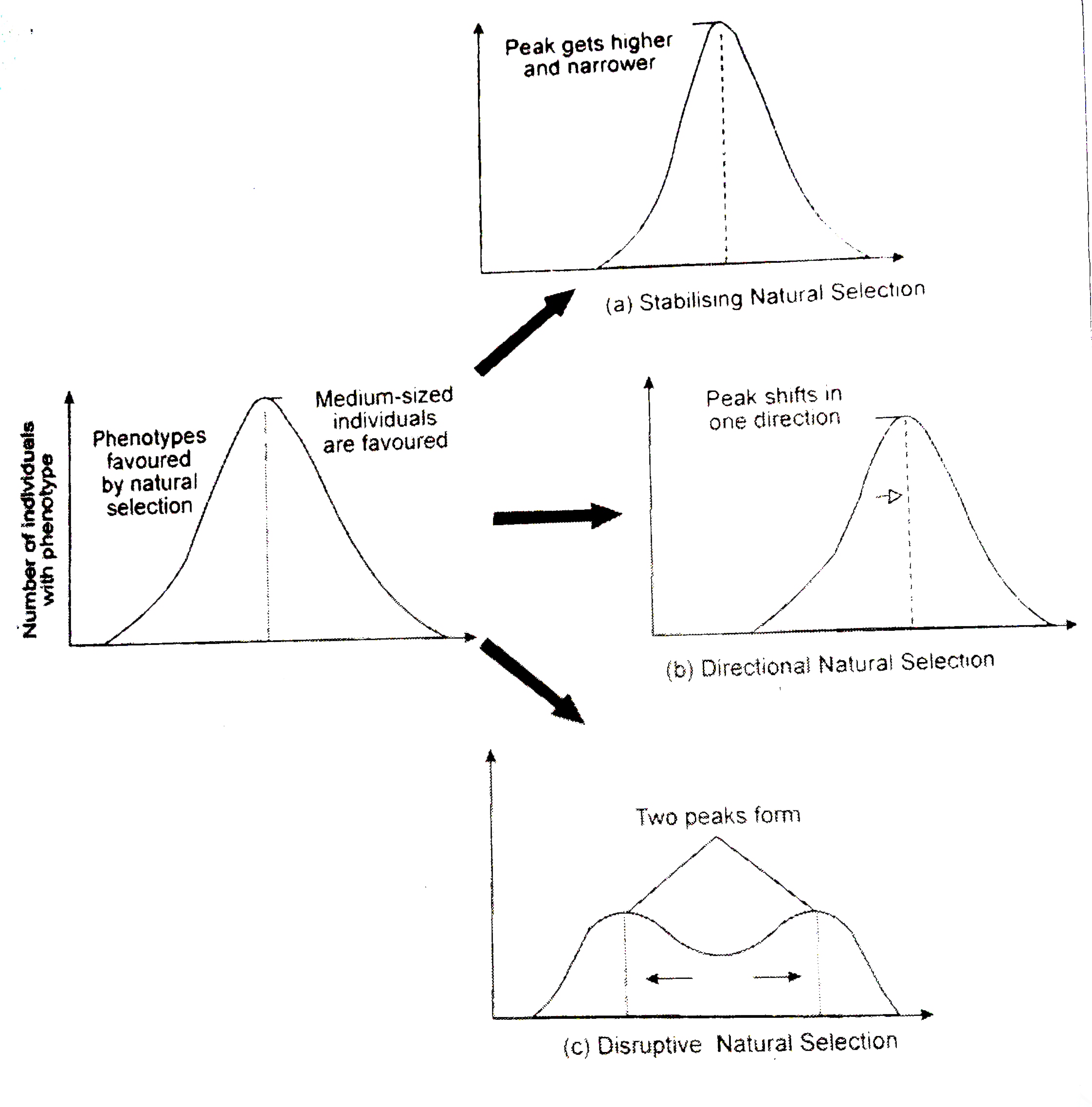How does the process of natural selection affect Hardy-Weinberg equilibrium? Explain List the other four factors that disturb the equilibrium.
Video Solution
Text Solution
Natural selection affects Hardy Weinberg Equilibrium principle which states that in sexually reproducing organisms the allele frequency is stable and is constant from generation to generation under certain conditions of stability. The gene pool, Le.. total genes and their alleles in a population remains constant. This is called genetic equilibrium. Natural selection is a process in which heritable variations enabling better survival are enabled to reproduce and leave greater number of progeny. Natural selection can lead to
(i) Stabilisation in which more individuals acquire mean character value.
(ii) Directional change in which more individuals acquire value other than the mean character value, le., towards one of the two extremes of the distribution curve.
(iii) Disruption in which more individuals acquire peripheral character value at both ends or extreme ends of the distribution curve.
The other four factors that disturb the genetic equilibrium are:
(i) Gene migration/flow. When migration of a section of population to another place occurs, there is change in gene frequencies.
(ii) Genetic drift. The random changes in gene frequency in a population occurring by chance alone rather than by natural selection. ltbr> (iii) Mutation. Pre-existing advantageous mutations when selected will result in observation of new phenotypes and over few generations this would result in speciation.
(iv) Recombination. Variations due to recombination during gametogenesis result in change frequency of genes and alleles in future generations.

|
Topper's Solved these Questions
- GENETICS AND EVOLUTION BOOK - TRUEMAN BIOLOGYCHAPTER - GENETICS AND EVOLUTION EXERCISE - SECTION-A
34 Videos
- GENETICS AND EVOLUTION BOOK - TRUEMAN BIOLOGYCHAPTER - GENETICS AND EVOLUTION EXERCISE - SECTION-C
45 Videos
- GeneticsBOOK - TRUEMAN BIOLOGYCHAPTER - GeneticsEXERCISE - ASSERTION AND REASON
123 Videos
- HUMAN HEALTH AND DISEASEBOOK - TRUEMAN BIOLOGYCHAPTER - HUMAN HEALTH AND DISEASEEXERCISE - MULTIPLE CHOICE QUESTIONS
213 Videos
Similar Questions
Knowledge Check
Hardy Weinberg equilibrium is affected by-
ANatural selectionBNew mutationCGenetic driftDAll of the aboveHardy -Weinberg equilibrium operates in absence of :
ArecombinationBmutationCnatural selectionDall of theseWhich of the following factor does not affect Hardy-Weinberg's equilibrium:-
AGene migrationBNatural selectionCGenetic driftDReplication of genetic material
What are the assumptions of Hardy-Weinberg equilibrium?
View SolutionWrite the name of any four factros which affect Hardy-weinberg equilibrium
View SolutionHardy Weinberg equilibrium and Modern Theory of Evolution
View SolutionState Hardy-Weinberg principle of genetic equilibrium. Write any four factors affecting the equilibrium
View SolutionWhich of the following factors changes Hardy-Weinberg equilibrium?
View Solution
